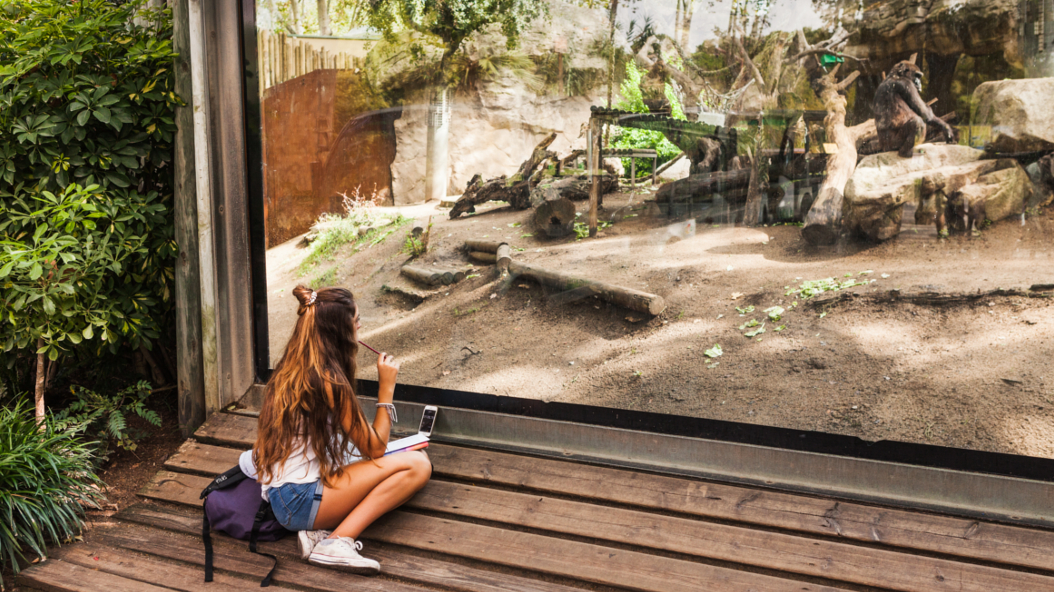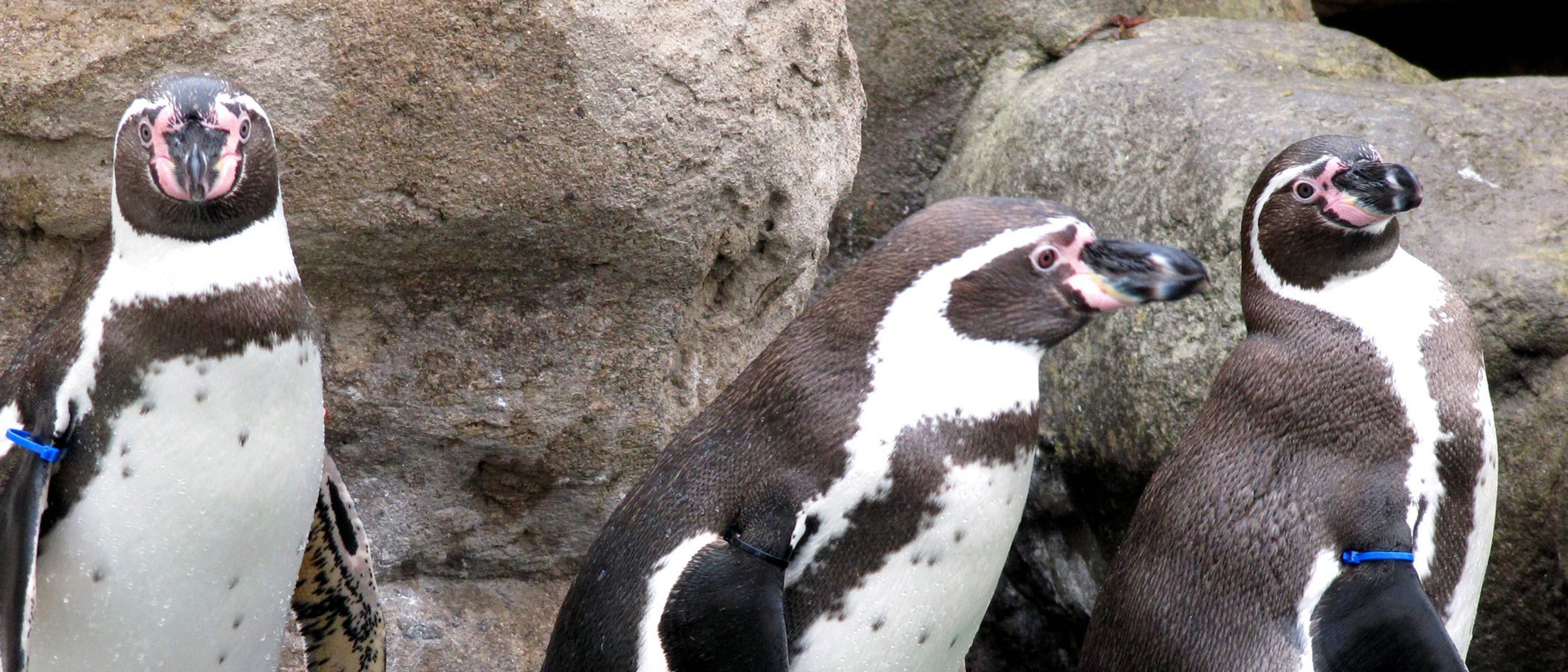Higher secondary final research

For all higher secondary students who would like to do their research project on zoology and/or biodiversity, the Barcelona Zoo’s Department of Education has prepared a course with the goal of advising students and assisting them in executing the project.
The subject matter for the projects can be varied, from ethological studies of primates and other land mammals, birds or reptiles, to studies centred on how the Zoo functions or endangered species.
The course will consist of three theoretical-practical sessions from 3 to 5 pm and one afternoon per week of advisory services from the Department of Education educators so that students can request the information they need and we can monitor the work done. They will be given a six month pass to come to the Zoo and make observations on the animal they pick. Experiments involving changes to the animals’ habitats or handling will in no case be allowed; their wellbeing is absolute priority to the Zoo.
We recommend that students first get the approval of their tutor at the school for doing their research project at the Zoo.
Sign Up
Start date
- 15th DECEMBER 2023
- 20th MARCH 2024
- 22nd MAY 2024
Hora d'inici: 15.30h
Once the course is started, it will not be possible to sign up. Those interested will have to sign up for the next edition.
During school holidays, the times that students can request service will be Wednesdays from 4.30 to 6.30h pm.
Getting ready
To get the most out of the Research Project course, we suggest working on these areas in advance at school:
To arouse students’ interest and increase their motivation about the animals:
- Review the different animals and/or subjects on which the project will be centred
- Agree on a work plan and outline the contents with the tutor
- Research bibliographical sources and information, either on the internet or using other resources, on the animal or subject selected
- Draw up a draft of the working schedule that includes: timelines for researching information, making observations and collecting data, data analysis, writing and reporting results, preparing materials for the project and presentation (always leaving a margin for possible unplanned additional tasks
For watching the animals:
- Look for a documentary, CD or other electronic mediums to observe the animal before coming to see it at the Zoo
As specific objectives:
- Planned structuring of the research project
Let’s go to the Zoo
The Research Project activity at the Zoo lets students in higher secondary do their research projects assisted and supervised by Zoo educators (biologists) and with the invaluable support of the animals living at our Zoo.
Common sessions:
Session 1
Introduction to the Department’s work plan, dividing of students in accordance with the topic selected and tour of the facilities by a Zoo educator (biologist), during which he or she will explain the possibilities offered by the different species.
Session 2
This session is different for each group, during which the biological and etiological determinants for each species are explained for designing the data registration sheets.
Session 3
Meeting with the person in charge of the department for which the project is being done, so that students have the opportunity to interview him or her and ask any and all questions on management and biology that they want.
Consultation sessions
From Monday to Friday (from 3 to 5 pm), students can come to the Zoo to consult bibliographical sources, studies and journals, as well as requesting any guidance or advice that they need.
Owing to the current health situation, these sessions will be scheduled by appointment only. It is important to contact the educator in charge to ask for a date and time to meet.
Observation sessions
All students receive a card that lets them enter the Zoo to make observations whenever they like and during the times most convenient for them. The card is valid for six months.
What have we learned?
Suggestions on what to do after the Higher Secondary Final Research course finishes at the Zoo:
Area of Natural Sciences:
- Present the project
- Keep researching, doing a second phase of the project after the first is completed
Evaluation of learning:
- Evaluation is done when students submit their projects to the school board of examiners
For teacher
CURRICULAR INTEGRATION OF THE HIGHER SECONDARY FINAL RESEARCH PROJECT COURSE
CROSS-CURRICULAR CORE AREAS
Education on protecting the environment
RELATIONSHIPS TO CURRICULUM SUBJECTS
Living organisms
OBJECTIVES
With regard to knowledge, facts and concepts:
- Introduction to the scientific method
- Other objectives depending on the content of each project
Contents of procedures:
- Collect information on all types of mediums for doing the project
- Obtain structured information on the animals via observation with ethograms
Attitudes, values and standards:
- Foster respect toward animals via better knowledge of them
- Raising students’ awareness on protecting nature
Price
Price: € 69.45
Do you have questions?
For more information, fill out the form below and we will contact you.



